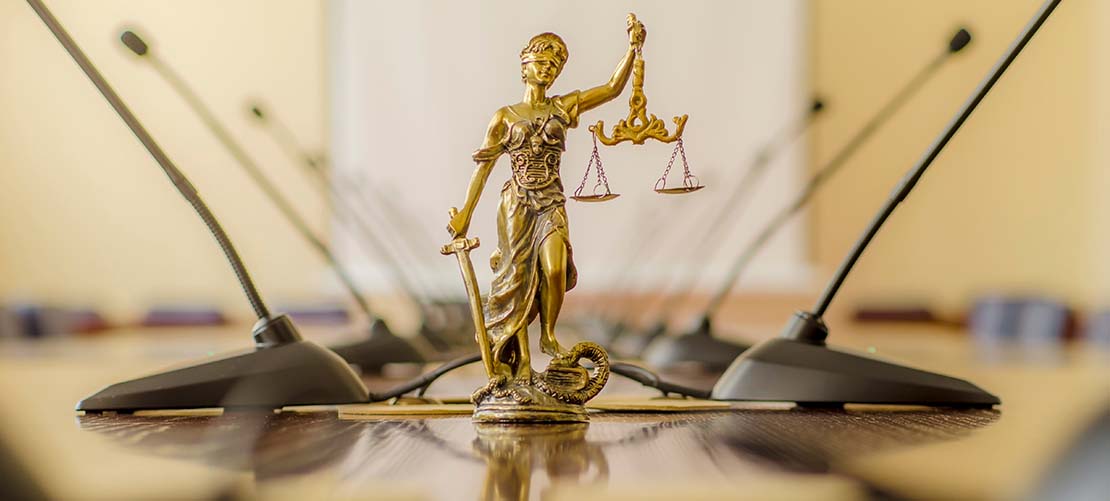Minimising mistakes: the Supreme Court restricts limitation period for mistake of law claims

The Supreme Court has provided a comprehensive judgment relating to s.32(1)(c) of the Limitation Act 1980
The Supreme Court has provided a comprehensive judgment relating to s.32(1)(c) of the Limitation Act 1980 (the "1980 Act") in Test Claimants in the Franked Investment Income Group Litigation & Ors v Commissioners of Inland Revenue (1) and Test Claimants in the Franked Investment Income Group Litigation & Ors v Commissioners of Inland Revenue (2) [2020] UKSC 47 (“FII (SC) 2”).
Although the facts of this case relate to complex tax issues, the judgment has a significant effect on the law of limitation generally. Crucially, it re-writes the law on when time begins to run in a claim based on a mistake of law pursuant to s.32(1)(c) of the 1980 Act.
Background
The Franked Investment Income Group Litigation (the "FII Group Litigation") has a lengthy and complex history, involving three references to the Court of Justice of the European Union, two Supreme Court judgments and two High Court judgments.
The claimants within the FII Group Litigation allege, in essence, that certain tax payments (relating to the tax treatment of dividends between UK resident companies and their non-resident subsidiaries) were made under a mistake of law. The claimants seek restitution of the alleged overpayments, in some cases dating back to the accession of the UK to the EU in January 1973.
The limitation period for a claim in restitution is six years from the date when the cause of action accrued (ss.2 and 5 of the 1980 Act). In most, if not all, cases the payments in the FII Group Litigation go back to the UK's entry into the EU in 1973. The claims were brought far more than six years from when most of the payments were made, and were therefore potentially time-barred. To surmount this difficulty the claimants relied upon s.32(1)(c) of the 1980 Act, arguing that the applicable limitation period had been postponed until they had “discovered” or could “with reasonable diligence” have discovered the mistake.
In support of their argument, the claimants relied upon the key limitation decisions in 1Kleinwort Benson and 2Deutsche Morgan Grenfell:
- In Kleinwort Benson, the House of Lords held that s. 32(1)(c) of the Act applies to mistakes of law, and that in such cases, the limitation period can be extended until 6 years after the mistake could, with reasonable diligence, have been discovered.
- In Deutsche Morgan Grenfell, the House of Lords held that a mistake of law is only reasonably discoverable when the truth is disclosed by the final judgment overturning the previous law.
HMRC (the defendant) argued that the decisions in Kleinwort Benson and Deutsche Morgan Grenfell were wrong and that the claimants could not benefit from s. 32(1)(c) of the Act.
Key judgment points
In a detailed exploration of the law relating to s.32(1)(c) of the 1980 Act, the Supreme Court followed the House of Lords in Kleinwort Benson in concluding that s.32(1)(c) applied to mistakes of law as well as to mistakes of fact. It therefore rejected HMRC’s challenge on this ground.
However, it overturned the much-criticised decision in Deutsche Morgan Grenfell on the test for when a mistake of law is reasonably discoverable. Departing from the House of Lord’s authority holding that “reasonably discoverable” equated to a judicial decision finally establishing what the true position under the law was, the Supreme Court held that “reasonably discoverable” meant as soon as the claimant realised it had a “worthwhile claim”. In reaching this conclusion, the Supreme Court relied on the following key points:
- Limitation periods set time limits for bringing claims. They apply to claims regardless of whether there is a well-founded cause of action.
- s.32(1) of the Act postpones the limitation period where the claimant cannot reasonably be expected to know they have a cause of action because of fraud, concealment or mistake.
- In relation to mistake of law, the Act cannot have been intended to postpone the limitation period until the claimant either discovers the claim is certain to succeed, or until the proceedings relating to the mistake of law are completed.
- In tying the date of the discoverability of a mistake of law to the date of a judicial decision which establishes that a mistake was made, the decision in Deutsche Morgan Grenfell had the illogical consequence that mistakes were not discoverable by a claimant until after they had issued a claim on the basis of the mistake.
In summary, the Supreme Court held that the decision in Deutsche Morgan Grenfell had frustrated the intention of Parliament in enacting s 32(1) of the Act and was inconsistent with, amongst other things, authorities concerned with s 32(1) in relation to fraud.
Having allowed HMRC’s appeal on this point, the Supreme Court remitted the question as to when the claimants could, with reasonable diligence, have recognised that they had a worthwhile claim back to the High Court.
Practical points
Although FII (SC) 2 dealt with tax paid under a mistake of law, the Supreme Court's reasoning focussed on the purpose of s. 32(1)(c) and did not seek to limit it to cases only involving tax. Therefore, this case is likely to be relied upon in the future beyond tax cases.
For s.32(1)(c) to apply to a mistake of law, the claim must be for relief from the consequences of that mistake. In the first Supreme Court case in the FII Group Litigation, (Test Claimants in the Franked Investment Income Group Litigation v Revenue and Customs Comrs (formerly Inland Revenue Comrs) [2012] UKSC 19; [2012] 2 AC 337 (“FII (SC) 1”)), the Supreme Court held that for s.32(1)(c) to apply, the mistake must constitute an essential element of the cause of action, and not merely form part of the context. In FII (SC) 1, the claimants had sought recovery of the tax paid under two grounds: (1) under the Woolwich ground of restitution, where a taxpayer was entitled to recover tax which was paid in response to an unlawful demand; and (2) that tax paid in ignorance of the fact that the legislation under which it was charged was incompatible with EU law. Only under the second ground was the mistake of law an essential element of the cause of action.
Where it can be proved that a mistake of law is an essential element of the cause of action, the limitation period will be postponed until the claimant discovers or could with reasonable diligence have discovered their mistake in the sense of recognising that a worthwhile claim arises. In elaborating on this, their Lordships in FII (SC) 2 made the following observation:
"The standard of reasonable diligence is how a person carrying on a business of the relevant kind would act, on the assumption that he desired to know whether or not he had made a mistake, if he had adequate but not unlimited staff and resources and was motivated by a reasonable but not excessive sense of urgency. The question is not whether the claimant should have discovered the mistake sooner, but whether he could with reasonable diligence have done so. The burden of proof is on the claimant. He must establish on the balance of probabilities that he could not have discovered the mistake without exceptional measures which he could not reasonably have been expected to take."
When a claimant could, with reasonable diligence, discover the mistake will be greatly dependent on the facts of the case and the state of the law at that time. This will not just relate to the claimant's lack of knowledge, but the knowledge of their professional advisors and the prevailing legal opinion at the relevant time. Indeed, the change in focus in the law of mistake may lead to the unusual possibility of a lawyers’ evidence as to their lack of knowledge of the law, potentially helping their clients’ claim.
1 Kleinwort Benson Ltd v Lincoln City Council [1999] 2 AC 349 (“Kleinwort Benson”)
2 Deutsche Morgan Grenfell Group Plc v Inland Revenue Comrs [2006] UKHL 49


